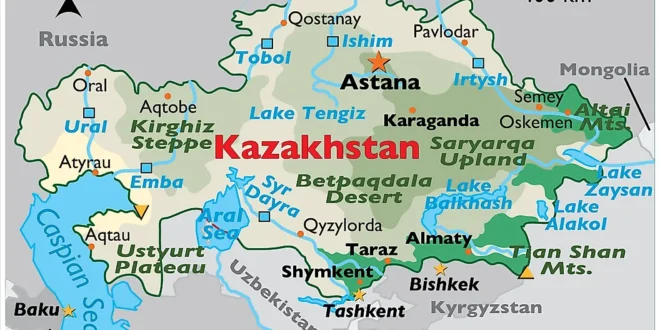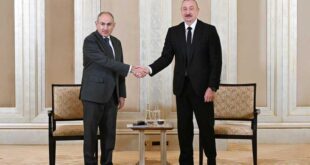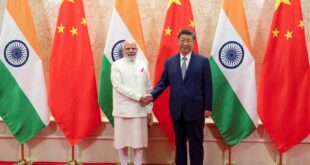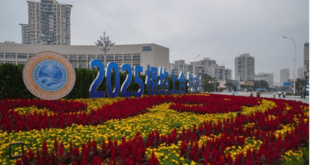Dr. Shehab Al-Makahleh
As tensions escalate across the Caspian region and the specter of nuclear confrontation looms ominously, Kazakhstan’s unwavering dedication to nonproliferation and its astute foreign policy position it as a potential arbiter in the Iranian crisis. By harnessing its diplomatic acumen and strategic location, Kazakhstan could play a quietly influential role in averting a regional catastrophe.
The Geopolitical Quagmire of the Caspian Sea
While global attention fixates on Iran’s potential closure of the Strait of Hormuz—an act that could precipitate soaring oil prices—equally pressing tensions simmer to Iran’s north. The Caspian Sea, flanked by Iran, Russia, Azerbaijan, Turkmenistan, and Kazakhstan, has long served as a crucible for great power rivalries.
Recent initiatives to establish trade routes circumventing Iran and Russia, notably the China-backed Middle Corridor traversing the Caucasus, have amplified Central Asia’s geopolitical significance. The United States perceives this route as a mechanism to marginalize both Iran and Russia concurrently. For Kazakhstan, this burgeoning importance entails not only risks but also heightened responsibilities.
Kazakhstan’s Proactive Stance Amid Escalation
In the wake of U.S. military strikes on Iran on June 22, Kazakhstan articulated concerns regarding deteriorating regional security within the Caspian basin. Both Russia and Iran find themselves mired in conflicts with uncertain outcomes, raising the specter of nuclear threats, border instability, and mass displacements that could reverberate throughout the Caucasus and Central Asia.
Kazakhstan, alongside its Central Asian counterparts, possesses a vested interest in preserving stability in the Caspian. Since achieving independence in 1991, Kazakhstan has adopted a “multi-vector” foreign policy, meticulously balancing the influences of Russia, China, the United States, and the European Union. This delicate equilibrium has evolved into a regional norm.
In this strategic milieu, Kazakhstan has urgently advocated for prompt agreements among concerned nations to avert nuclear escalation and bolster global nonproliferation efforts.
From Nuclear Proliferation to Disarmament Vanguard
Kazakhstan’s leadership in nuclear nonproliferation transcends mere symbolism; it is profoundly historic. Following the dissolution of the Soviet Union, Kazakhstan inherited the world’s fourth-largest nuclear arsenal along with a vast nuclear testing infrastructure.
By 1996, with the backing of the U.S. through the Nunn-Lugar Cooperative Threat Reduction Program, Kazakhstan successfully dismantled its entire arsenal of nuclear warheads, earning international acclaim and fostering global trust.
From 1949 to 1989, the Semipalatinsk Test Site became synonymous with Soviet nuclear testing, where 456 tests inflicted severe radiation-related casualties and irreversible ecological damage. In a poignant acknowledgment of this legacy, President Nursultan Nazarbayev unilaterally banned nuclear testing and decommissioned the site in August 1991, establishing Kazakhstan as the inaugural nation to undertake such an action.
Since then, Kazakhstan has ardently championed global nuclear disarmament through initiatives like the ATOM Project and active participation in United Nations advocacy.
Kazakhstan’s Diplomatic Engagement with Iran
Kazakhstan’s historical role as a neutral and pragmatic partner affords it diplomatic access to both Western powers and Iran. The nation hosted two pivotal rounds of the P5+1 nuclear negotiations in 2013, which played an instrumental role in shaping the Joint Comprehensive Plan of Action (JCPOA).
Moreover, Kazakhstan has collaborated with the International Atomic Energy Agency (IAEA) to establish a low-enriched uranium (LEU) bank on its territory, operational since 2017. This facility provides a secure supply of nuclear fuel for peaceful purposes and could present Iran with a monitored, legitimate pathway for civilian nuclear development.
While staunchly supporting nonproliferation, Kazakhstan also defends sovereign rights within the framework of international norms, advocating for Iran’s entitlement to develop civilian nuclear technology, provided it adheres to IAEA guidelines.
Economic Significance and Strategic Positioning in Central Asia
As the foremost economy in Central Asia, Kazakhstan’s political and economic stability serves as a model for neighboring nations. Since its independence, Kazakhstan has attracted an impressive $431 billion in foreign investment across diverse sectors, including energy, mining, agriculture, and finance. President Nazarbayev’s strategy to diversify foreign partnerships has laid the groundwork for this substantial growth.
Under the leadership of President Kassym-Jomart Tokayev, Kazakhstan has embarked on an ambitious agenda to double its GDP to $450 billion by 2029, prioritizing infrastructure development, digital transformation, artificial intelligence, and agricultural modernization. This economic vision encompasses the attraction of an additional $150 billion in foreign investment.
Central to this strategy is the Middle Corridor—a vital trade artery circumventing Russia. The imposition of sanctions on Moscow has rendered this corridor increasingly appealing, prompting Kazakhstan to invest significantly in its development. As this route gains prominence, Kazakhstan’s stability becomes even more crucial.
Navigating Great Power Dynamics Through Multi-Vector Diplomacy
Kazakhstan’s foreign policy is predicated on the delicate balancing of global powers. It has cultivated robust ties with Russia and China while simultaneously expanding cooperation with the European Union and the United States. This stance of neutrality empowers Kazakhstan to act as a credible mediator in crises where other actors may be disqualified by inherent biases.
This balanced approach has enabled Kazakhstan to withstand pressures from any singular actor. In an era marked by increasing polarization, Kazakhstan’s ability to engage with all parties represents a rare and invaluable asset.
A Paradigm of Peace and Mediation
Kazakhstan’s exemplary record in nuclear disarmament and its commitment to balanced diplomacy position it uniquely to mediate a resolution to the Iranian crisis. Its legacy of renouncing nuclear weapons, its collaborative efforts with the IAEA, and its pragmatic relations with both Tehran and Washington endow it with a singular standing.
As noted by Kazakh political analyst Daniyar Ashimbayev, “Kazakhstan is uniquely positioned, with logistics, trade networks, and balanced relationships with multiple powers.”
These attributes may not only enable Kazakhstan to maintain a nuclear-free Central Asia but could also extend its influence in nuclear diplomacy far beyond its borders.
Conclusion: A Legacy of Diplomacy in Perilous Times
In an increasingly volatile geopolitical landscape, Kazakhstan’s legacy of restraint and diplomatic engagement shines brightly. Its unwavering commitment to nonproliferation, pragmatic interactions, and regional cooperation can illuminate pathways toward stability amid chaos.
In an era where diplomacy is scarce and nuclear threats proliferate, Kazakhstan may emerge as one of the few actors capable of redirecting the discourse towards peace.
 Geostrategic Media Political Commentary, Analysis, Security, Defense
Geostrategic Media Political Commentary, Analysis, Security, Defense





